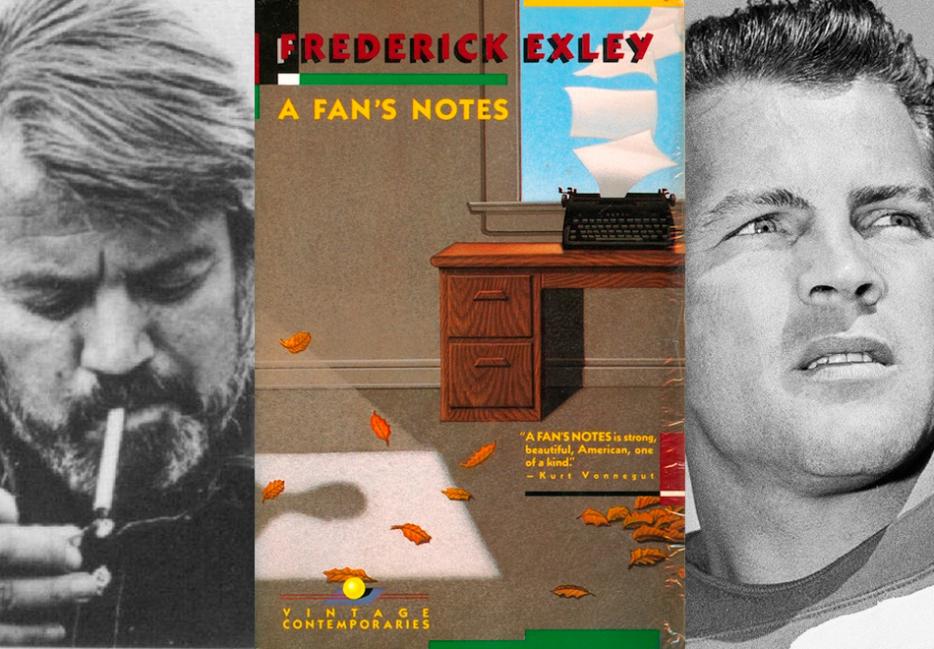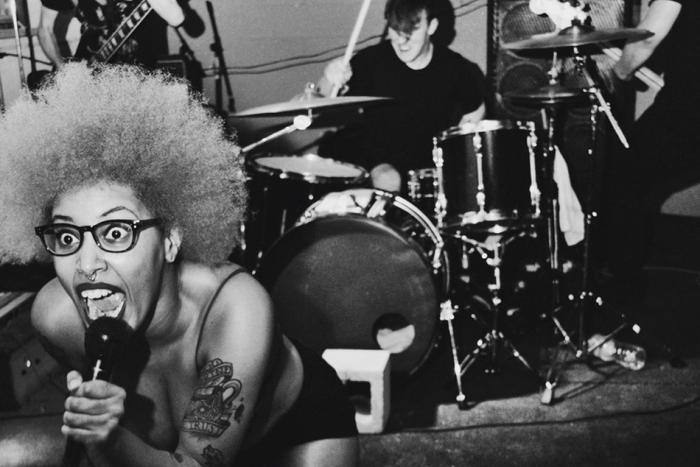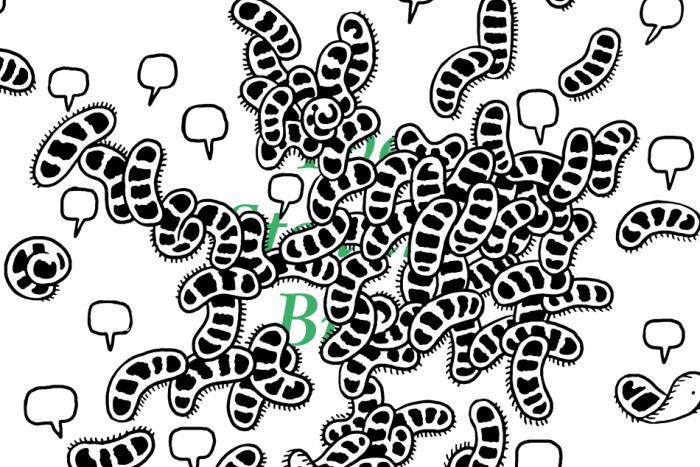Nobody would have mourned football legend Frank Gifford, who died this week at the age of 84, quite like Frederick Exley. Or, at least, the Exley who narrated his fictional memoir, A Fan’s Notes, an alter ego for whom Gifford was an obsession to the point of becoming, as the author claimed, a further alter ego.11“Exley,” unless noted otherwise will refer to the fictional Exley going forward. To New York football Giants fans such as Exley, Gifford was a league MVP and a key player on the 1956 championship team; it was their last until Bill Parcells won the Super Bowl thirty years later. Gifford was also an unwilling icon of the sport’s violence, losing a year and half to a vicious hit from the Eagles’ Chuck Bednarik, who became an icon himself for the same play. To most of us under 60, however, Gifford was primarily a broadcaster—that or a disembodied spousal reference on Live! with Regis and Kathie Lee (Mark Consuelos replaced him in that regard when Kelly Ripa took over). To fans of Exley the writer, though, Gifford is the Adonis of a strange and disturbing book—the square jaw that many may be discovering for the first time in this news cycle.
Exley came across Gifford at the University of Southern California, where he’d transferred to escape a heartbreak back east at Hobart College. Even then, USC was a football Shangri-La. An author once insisted to me that Big Ten teams lost in the Rose Bowl game (of which USC has won the greatest number) because of the way the light hit them—“football weather” was something different in the Midwest, and they were quite literally dazzled. The reality is that the Midwestern teams have historically won about the same number that they’ve lost, and Gifford’s Trojans didn’t make the Rose Bowl at all during his collegiate career (it was their cross-state rival California Golden Bears who went, losing all three times to the Big 10 representative). But none of this stopped Gifford from being the big man on campus—and in the city—that a USC All-America generally is.22Sports copy editors delight in using the correct “All-America” over the incorrect, but familiar, “All-American.” Exley’s novel uses the correct form.
In the book, Exley’s Los Angeles appears to be more the Los Angeles of John Fante than of Frank Gifford, more a city of misfits than matinee idols. Yet Gifford himself grew up in Bakersfield, a town in the “other” California—Steinbeck’s, to some—that at times has as much in common with its neighbouring mountain states, but can still claim relation to those glittering cities on the coast. In this way, Gifford’s hometown is not so totally different than Exley’s upstate New York.
Maybe for an outcast like Exley, talking about sports (and writing about sports) is an icebreaker—the beginning of a conversation, or a stand-in for one.
It was in New York City where Exley became obsessed with Gifford, after the latter conquered the town on which Exley had set his literary and commercial sights while playing on Exley’s childhood team.33Early in the book Exley surprisingly refers to Dallas Cowboys coach Tom Landry only as “the opposing coach,” and not by name. Landry was not only a former Giants player, he was the offensive coordinator for the 1956 Giants (across from defensive coordinator Vince Lombardi), so Exley would have known him well. Was Exley nursing a grudge? We know he watched the championship because he reports gracelessly enjoying the blowout in Chicago surrounded by the opposing Bears fans.
One of the few characters for whom Exley exudes real sympathy is Steve Owen, the outgoing Giants coach (and a stand-in for Exley’s old-fashioned father) whose defensive philosophy is treated as an anachronism, “three yards and a cloud of dust” while the rest of the league was taking to the air with passing, what the Raiders’ Al Davis would soon call “the vertical game.” Likewise, one of the few actual social circles Exley describes convincingly can be found at these games, which he watches with a group of blue-collar Brooklynites who make the long trip to the Polo Grounds. Though affectionate towards them, still he’s apart from them—superior to them—while almost simultaneously criticizing the “Chesterfield-coated corporation executives” who would later flock to Giants games: the same executives he disdainfully strives to impress in job interviews. Maybe for an outcast like Exley, talking about sports (and writing about sports) is an icebreaker—the beginning of a conversation, or a stand-in for one.
Exley’s idol peer is, of course, Gifford, and it is the endurance of Exley’s idolatry that is as unusual as its intensity. Obsession with a team persists as an adult, but less so with a player. Even today, adult fans wear T-shirts and jerseys with players’ names on them, but it’s not exactly cosplay: there’s little pretending to be them much beyond the “two outs in the bottom of the ninth/he shoots, he scores!” imagination of childhood. Exley himself has no shortage of idolizers, though few would assume they could do better at doing worse. His hometown of Watertown, New York, probably has its share of pilgrims (as well as the bar in Alexandria Bay where I’ve been told his chair is nailed to the ceiling), as does his namesake bar, The Exley, in Williamsburg.44The Polo Grounds and Yankee Stadium, where Exley watched Gifford play, have been long torn down and replaced, respectively. The Los Angeles Coliseum, however, survives as the home of USC football (and has hosted two Olympic Games, among other teams).
But the reality is that many of us wouldn’t choose either of their lives: Gifford’s for the intrusion of fame and magnification of his mistakes, and Exley’s for his misery, much of it self-inflicted. In A Fan’s Notes, Exley is selfish, insecure, and a narcissist.55And a misogynist, and a racist, and a homophobe—no matter how sympathetic he is to others' marginalization, or how aware he is of his displaced self-loathing.
Exley the author may have been all of these things—as well as other, better things. Perhaps Exley also knew that to act like his narrator is to reduce yourself in the eyes of those towards whom you act (perhaps he didn’t, and it’s a lesson to the reader anyway). Perhaps part of his idolatry of Gifford was Gifford’s congeniality—something that seemed as unattainable as athletic ability, and, therefore, beyond responsibility.
We tether ourselves to others as a path not taken, a dream unfulfilled. A lesson unlearned, a responsibility unmet. We mourn idols as ourselves because even that unachieved road must end. Exley died in 1992, when Gifford was still doing play-by-play on Monday Night Football (staring comfortably down from the television at The Parrot in Watertown), and there’s no reason to guess that his narrator would still be alive in this or any other parallel world—but part of him would have died again this week as well.





